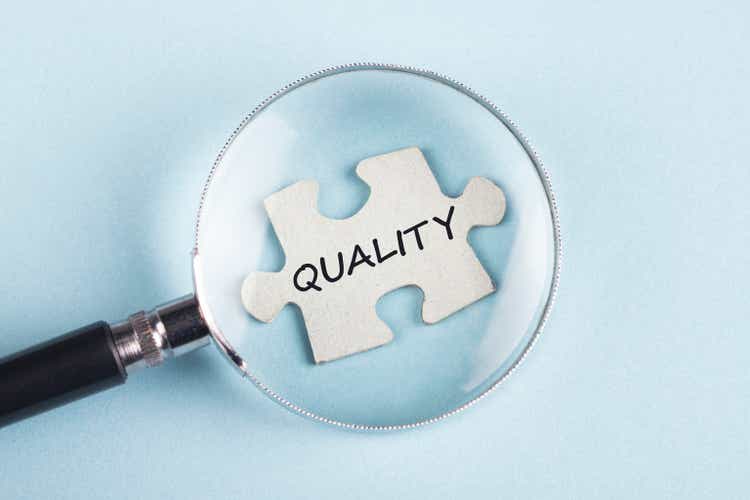Joe Biden and Xi Jinping meet in effort to stabilise relations
Stay informed with free updates
Simply sign up to the US-China relations myFT Digest — delivered directly to your inbox.
Joe Biden and Xi Jinping are holding a high-profile summit in San Francisco in a renewed attempt to stabilise US-China relations after several years of rising tensions and mounting concern about a possible conflict over Taiwan.
The US administration played down expectations ahead of the Wednesday meeting, saying it was focused on managing risks of further deterioration in the relationship and preventing conflict rather than producing splashy outcomes.
“We have to ensure that competition does not lead to conflict,” Biden told Xi as the meeting began, adding that the countries could work together on issues ranging from artificial intelligence to the climate.
Xi told Biden that the world had emerged from the global pandemic but was still under its “tremendous impacts”. The global economy was recovering, but its momentum remained “sluggish”, he said, adding that industrial supply chains were under the threat of interruption and protectionism was rising.
“All these are grave problems,” the Chinese president said, but the two countries should be “fully capable of rising above differences”.
“Planet Earth is big enough for the two countries to succeed,” Xi said.
It is Biden and Xi’s second in-person meeting since the US president took office in 2021, and will last four hours. They met at the Filoli estate south of San Francisco and had lunch before attending the Asia-Pacific Economic Cooperation forum with other world leaders in the city.
Biden and Xi held their first summit a year ago on the sidelines of the G20 in Bali, Indonesia, where they agreed on the need to ensure that intense competition between the US and China “did not veer into conflict”. But efforts to create a “floor” under the relationship were derailed when a suspected Chinese spy balloon flew over North America in February.
The presidents were expected to discuss a range of issues, including US concerns about China’s military activity around Taiwan and its rapidly expanding nuclear arsenal. Chinese officials said Xi’s priority was Taiwan, but he would probably bring up Biden’s efforts to restrict China’s access to the advanced chips needed for artificial intelligence applications.
National Security Council spokesperson John Kirby said Biden would raise concerns about Chinese human rights abuses, including its treatment of Uyghurs in Xinjiang, in his talks with Xi.
“We absolutely believe that the situation needs to be remedied and these people need to be afforded civil and human rights,” Kirby said. “There’ll be no slackening of our desire to see the situation changed.”
Instead of dining with Biden on Wednesday evening Xi will attend a dinner in San Francisco with American business leaders, as part of the Chinese effort to reduce concern in the US about investing in the country.
The leaders are expected to reach some modest agreements in San Francisco, including reopening military communication channels that China shut after then-House Speaker Nancy Pelosi visited Taiwan in August 2022.
China has also agreed to crack down on the flow to Mexican cartels of chemicals used to make fentanyl, a deadly synthetic opioid.
One senior US official said the Biden team had “realistic expectations” about possible agreements but added that it was important to meet to manage the relationship responsibly, partly to reassure American allies.
Over the past few months, several US cabinet secretaries have visited Beijing, partly in recognition that Washington needed to boost high-level engagement to reduce miscommunication and properly explain policies that each side does not like.
“Allies and partners are probably a bit relieved that the US is able to have those bilateral channels of communication and talk directly with China about difficult aspects of the relationship, whether that is related to specific irritants such as technology controls or overarching issues such as Taiwan and regional stability,” said Emily Kilcrease, an expert at the Center for a New American Security think-tank in Washington.
Over the past three years, US allies have become increasingly alarmed about the possibility of conflict over Taiwan as the Chinese military becomes more assertive around the island and Washington does more to help Taipei defend itself amid mounting economic and military pressure from Beijing.
The US and its allies are also worried about the accelerating pace of risky manoeuvres by Chinese fighter jets in proximity to their spy planes. China has responded by accusing the US of flying too close to its coast — a criticism Washington dismisses because the planes are flying in international airspace.
Concerns about possible conflict over Taiwan have eased in recent months, particularly after the Pentagon warned top officers to stop issuing public predictions about when China might attack Taiwan. In a visit to Tokyo last week, General Charles Brown, the new chairman of the joint chiefs of staff, said he believed Xi did not want to use force against Taiwan if avoidable.
But US allies have been keen to see the summit proceed to ensure the powers are engaging at top levels and have mechanisms to deal with crises. China only recently confirmed that Xi would attend. It wanted assurances the US would not do anything that would embarrass Xi during his visit.
Xi had not visited the US since April 2017 when he met then-president Donald Trump at his Mar-a-Lago estate in Florida. As the leaders dined that evening, Trump informed Xi that the US had just struck Syria with dozens of cruise missiles.
Source link




